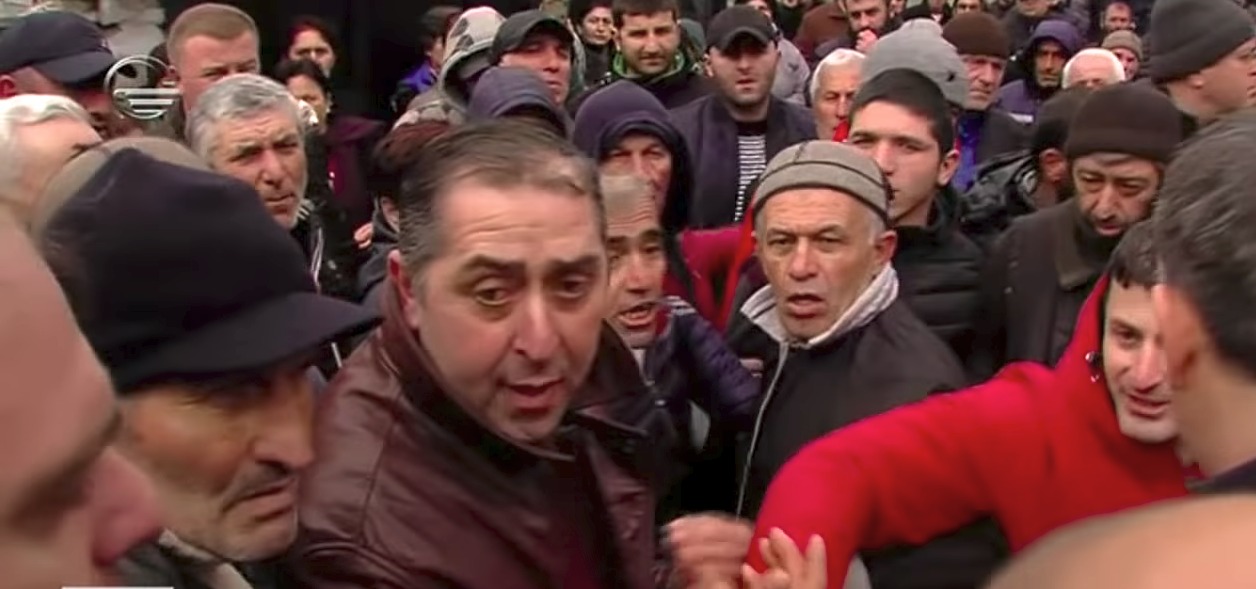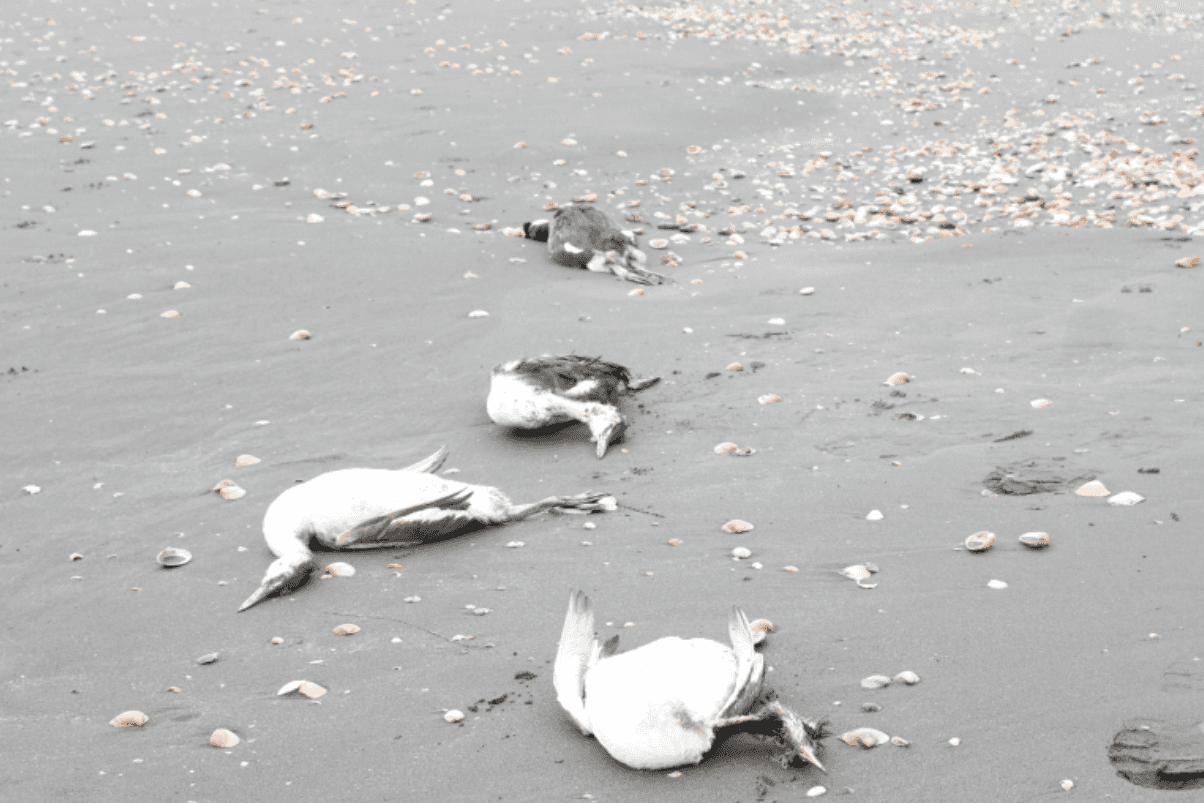

Residents of Lentekhi, the municipal centre of Georgia’s historical Lower Svaneti region, have thwarted a government-organised meeting planned to discuss the environmental impact assessment report of a hydropower plant project in the region.
Protesters blocked the entrance to Lentekhi’s sports hall and refused to let the prime minister’s advisor on regional issues, Sozar Subari, and other officials into the building.
Protesters accused Subari of disregarding local objections to the Kheledula 3 HPP project.
Subari urged protesters to go inside the building to discuss the project, admitting there were ‘flaws in the research’ which would ‘need additional study’.
Protesters reacted angrily after he claimed the protest was preventing other local people who wanted to hear them out, with several residents accusing him of ‘trying to drive a wedge between local population’.
Eldino Liparteliani, 41, a resident of Lentekhi and a physician by education who participated in the protest, told OC Media that ‘the gorge [where the hydropower plant will be built] is narrow and seismically unstable’ and that the project posed a threat to their houses and the local environment.
‘The project is dangerous and devastating for local residents’, Eldino said.
She said that ‘only a minuscule’ proportion of local residents supported the hydropower plant, and that they ‘don’t intend to let the project materialise’.
After being prevented from holding the meeting in Lentekhi due to the protest, officials, accompanied by Svaneti’s Mestia district majoritarian MP Viktor Japaridze, later moved to the House of Culture in Mestia town as an alternative venue.
Kheledula Hydro Power Plant 3 is planned to have a 50MW capacity and generate around 250 million kWh annually. The company responsible for constructing the plant is Khedelula Energyive, 100% owned by Turkish company Anadolu Tasıt Ticaret AS.
Khedula 3 is set to construct a tunnel and pipes between the Khedula and Devashi rivers, and remove about 20 hectares of nearby forest.
A large number of residents of the villages near Lentekhi have been critical of the project throughout 2018.
Relocating public meetings
In March 2018, residents of Lentekhi Municipality blocked a road near the village of Lesema to protest public discussions organised by representatives of the Ministry of Environment in the villages of Lentekhi and Kheledi.
In a meeting in Lentekhi in April, deputy minister of economy Romeo Mikautadze told local residents that every new HPP would contribute to the country’s energy independence.
It did not stop the protests. In July, several residents went on a hunger strike until representatives of the company left the municipality.
The Ministry of Environment also failed to convince residents of Lentekhi to support the Kheledula 3 project later that year. After an hour of heated discussion, local residents walked out of a meeting organised in Tbilisi in early December 2018.
‘You are a ministry for ruining the environment, not a ministry of its protection, as I see it’, one woman blocking officials from the meeting hall on 22 March told Natia Turnava, deputy minister of economy and sustainable development.
She accused the government of going forward with a mock public discussion of the environmental impact assessment after being unable to hold a public meeting within the earlier ‘scoping process’.
The scoping process was the preliminary evaluation stage of the project, which was supposed to include all relevant parties, stakeholders, and experts to outline the overall scope of enquiry. This was followed by the comprehensive environmental impact assessment and public hearings on it.
Speaking to OC Media, Dato Chipashvili from the Green Alternative advocacy group said that the ‘overwhelming majority’ of residents of Kheledi, Tsanashi, and Lesema, the three villages that would be ‘directly affected’ by the project, were ‘clearly against’ it.
According to Chipashvili, the valley in Lentekhi Municipality was in a geologically active zone and would be prone to landslides, and that the project would also ‘directly endanger’ residents’ access to drinking water.
But he noted that the problem around the Kheledula 3 project was not only environmental concerns, highlighting what he called the environment ministry’s practice of relocating public meetings after facing resistance.
In August 2018, the Georgian Young Lawyers Association (GYLA) submitted a complaint to Tbilisi City Court, challenging the Georgian Ministry of Environmental Protection and Agriculture for not ensuring public review before proceeding with the next step — the environmental impact assessment.









